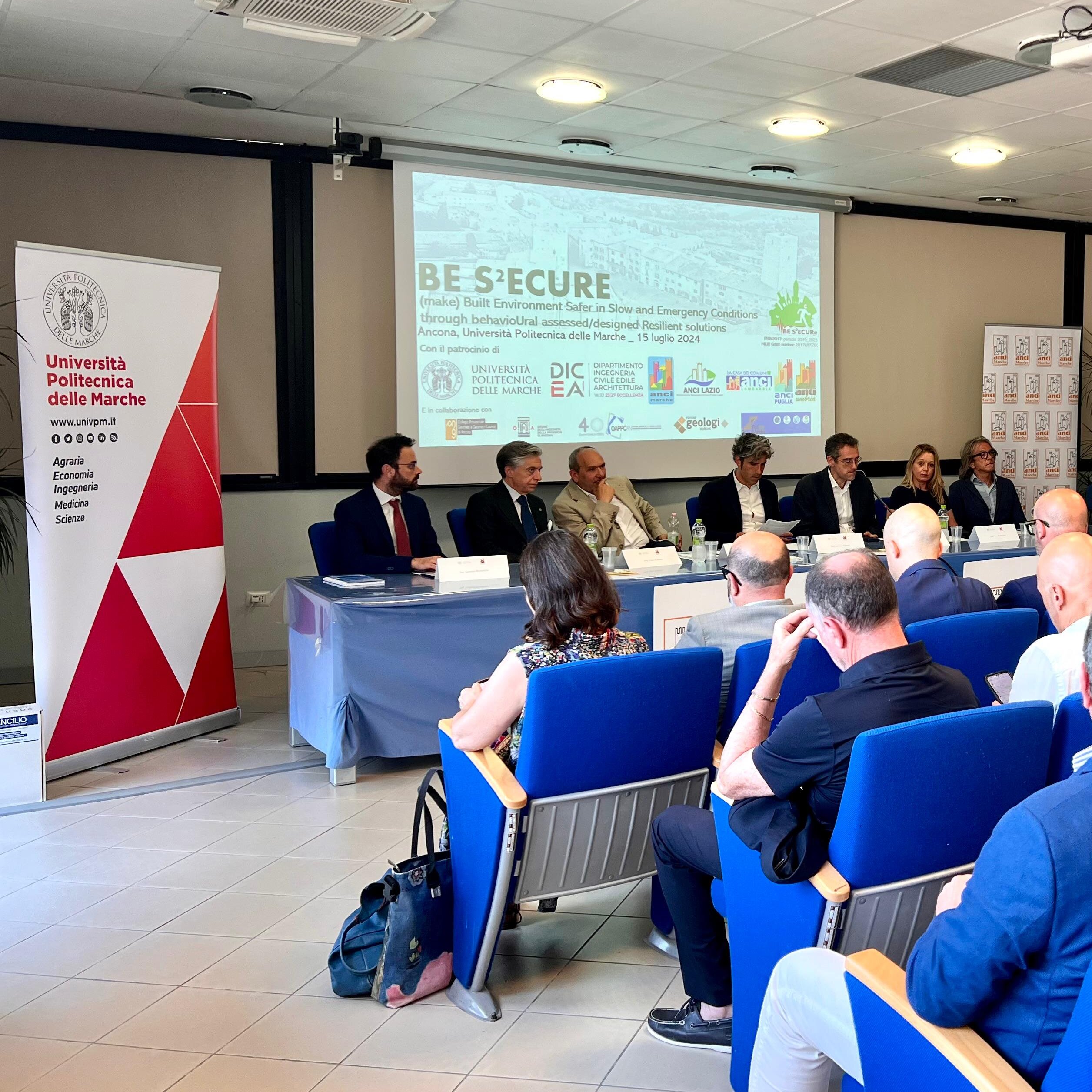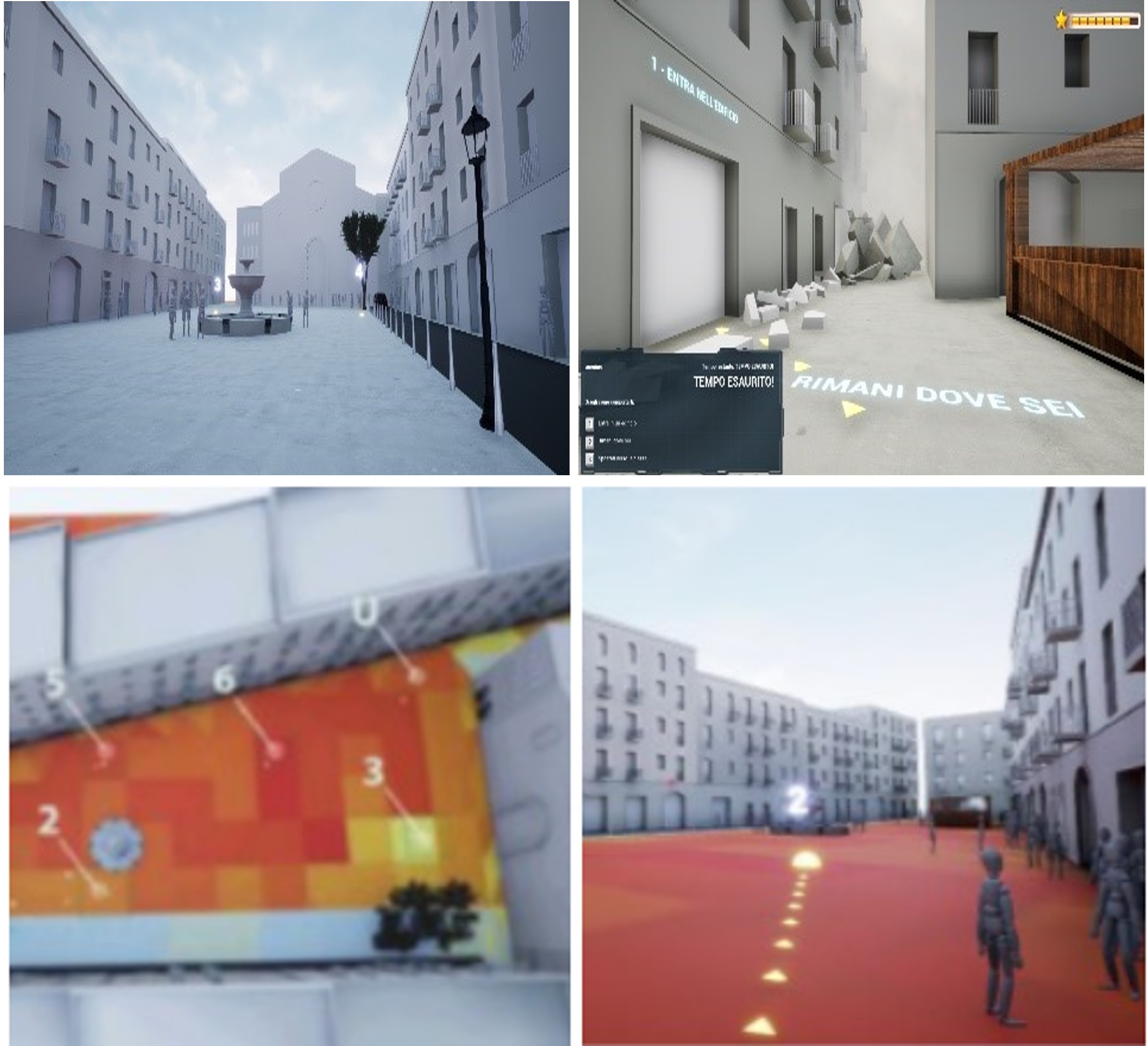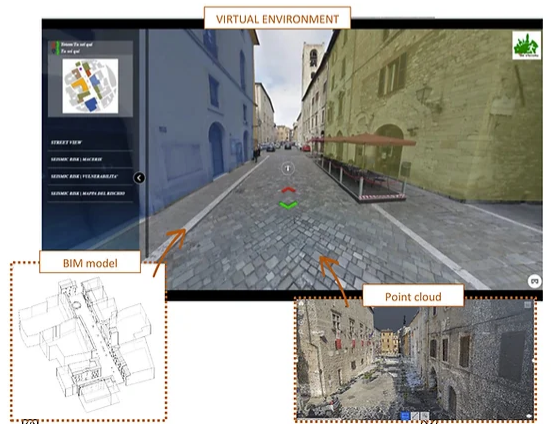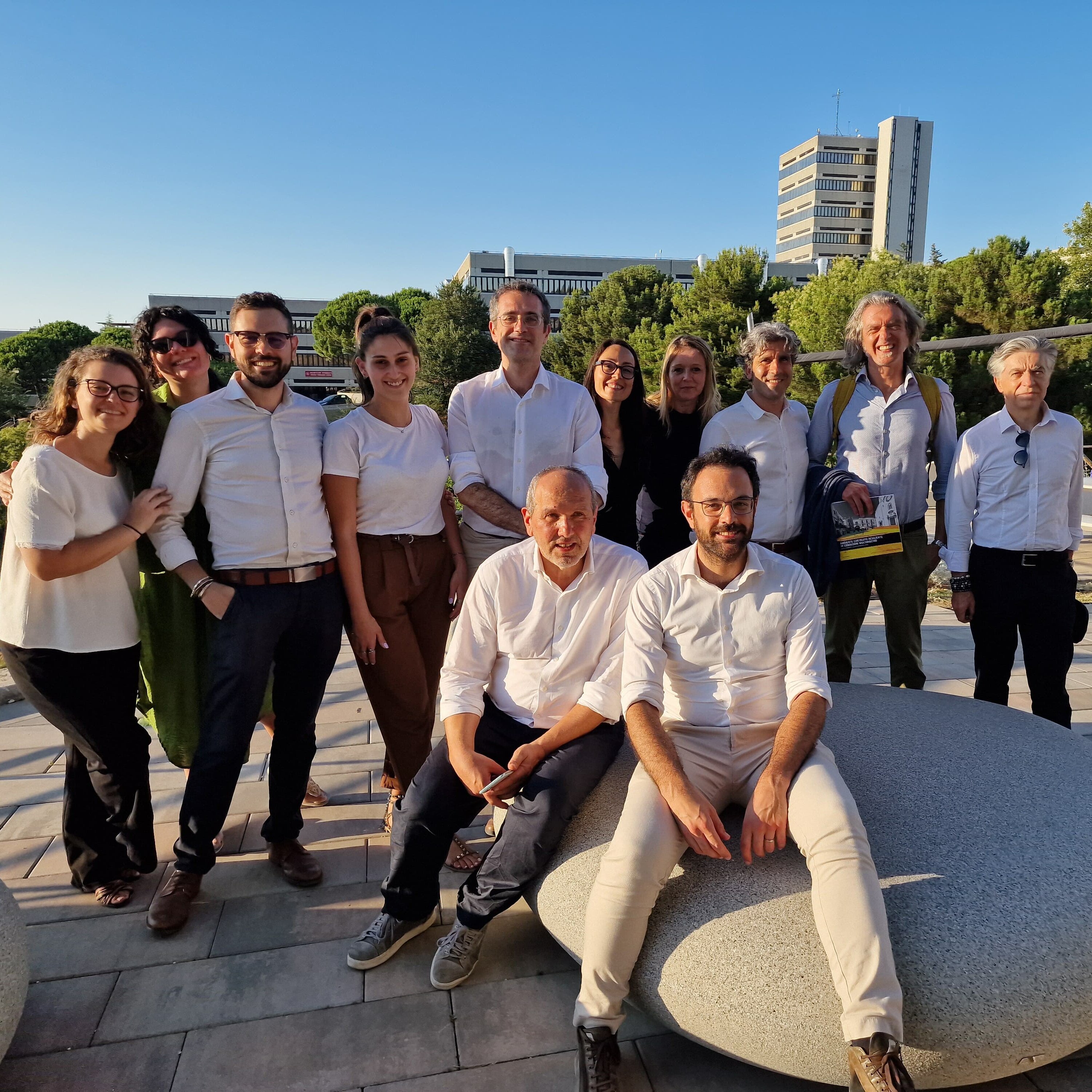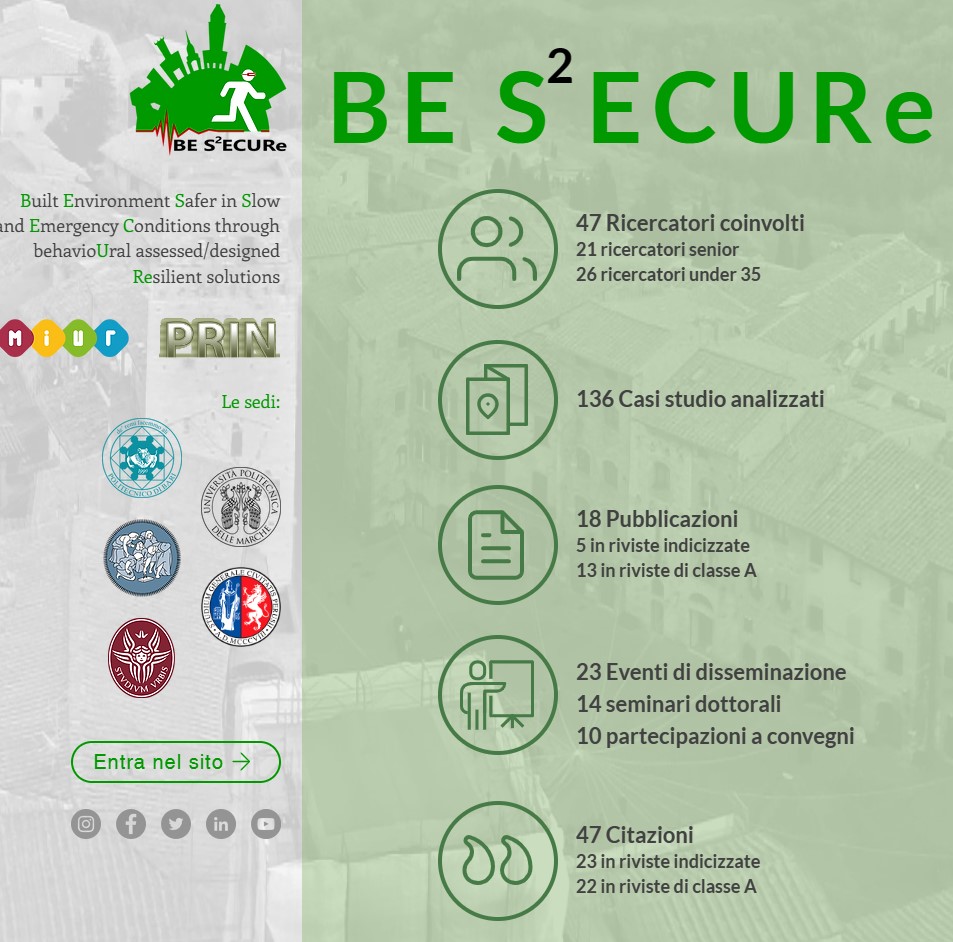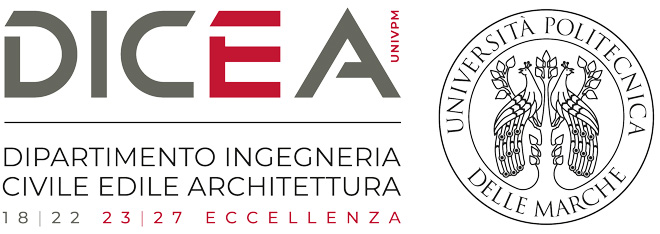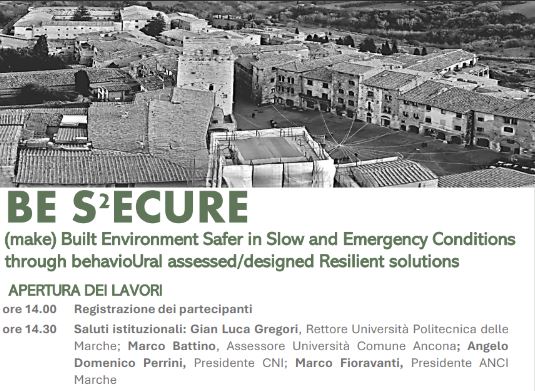“The concept of risk must move from static to dynamic, because it varies according to the specificities of the disaster event, the combination with other possible risk conditions, as wellas the hour, the day, the time of year in which it occurs, and the unique and essential characteristics of the built environment in which it occurs and of the users who are exposed to it”
This, in summary, is the approach of the project “BE S2ECURe – (make) Built Environment Safer in Slow and Emergency Conditions through behavioUral assessed/designed Resilient solutions” – funded by the Ministry of University and Research as part of the Projects of Relevant National Interest (PRIN) 2017, the results of which were shown on the 15th of July in a conference organized under the patronage of ANCI Marche and the Polytechnic University of Marche, DICEA department. The project, which began in 2019, and ended in 2023, involving over 44 researchers, more than half of whom are under 35, analyzing 136 case studies, and pouring the result of the research into over 10 publications in international journals, three monographs, and 20 dissemination events and conferences
BE S2ECURe offers local administrations and its technicians a complete toolkit to create single and multirisk scenarios by understanding all the factors that characterize it, including the “human factor”, and to evaluate how different mitigation strategies can contribute to the reduction of multi-risk, thanks to simulation-based approaches. BE S2ECURe innovative tools, also based on simulation and virtual reality technologies, and the assessment methods, both expeditious and holistic, developed by the groups of the Polytechnic University of Marche, the Polytechnic of Bari, the Polytechnic of Milan, the Sapienza University of Rome, and the University of Perugia, are able to support the transition towards a growing resilience level in the existing Built Environment, and in particular in outdoor public spaces, given their relevance both in the life of our urban centers and in the operational management of emergency events and evacuation plans.
The conference, coordinated by Francesca Bedeschi, Director of Anci Marche in the first part, were introduced by the greetings of Prof. Marco D’Orazio, Pro-Rector of the Polytechnic University of Marche, the Councilor for the University for the Municipality of Ancona Marco Battino, Marco Fioravanti, the President of Anci Marche and the representatives of the regional ANCI of Lazio, Lombardy, Puglia and Umbria.
After the technical interventions of the research group, the round table underlined the importance of such kinds of tools and methods for risk management, and the challenges that lie ahead in the immediate future. The round table, moderated by Roberto Oreficini, Vice-President of the National Commission for Major Risks, saw the participation of Antonio Ragonesi, Head of the Civil Protection and Security Area of Anci Nazionale, Titti Postiglione, Deputy Head of the Civil Protection Department of the Presidency of the Council of Ministers, Roberto Cardinali, President of Confindustria Marche, Stefano Stefoni, Director of Civil Protection of the Marche Region.
Discover more at
- https://www.bes2ecure.net/
- https://www.instagram.com/be_s2ecure/?hl=it
- https://www.facebook.com/share/v/zmPPCA5dteTAFThx/
- https://www.viveremarche.it/2024/07/16/anci-marche-be-s2ecure-cambia-la-modalit-di-gestione-delle-emergenze-in-caso-di-calamit-o-attacco-terroristico/312723/
- https://www.corrieredelconero.it/redazionale/be-s2ecure-innovazioni-nella-gestione-delle-emergenze-per-ridurre-i-rischi-in-caso-di-calamita-e-attacchi-terroristici/

